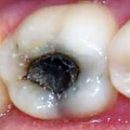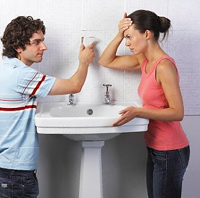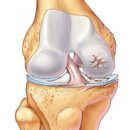What to do if polyps were found in the nose? - First of all, this very nose do not hang. And thoroughly all know about this short. To begin with, - about its causes and diagnostics.
Content
Nasal congestion: Causes can be different
 Difficult nasal breathing causes strong discomfort, reduced performance, chronic fatigue and fast fatigue, headaches. People complain that in the evening they can't fall asleep for a long time, and the morning awakening does not bring relief, on the contrary, a person feels weak and broken.
Difficult nasal breathing causes strong discomfort, reduced performance, chronic fatigue and fast fatigue, headaches. People complain that in the evening they can't fall asleep for a long time, and the morning awakening does not bring relief, on the contrary, a person feels weak and broken.
Nose Constrictions are quite a lot - it can be a banal infection, allergic and drug rhinitis, inflammation of the hymorous sinuses… As a rule, treatment of the disease leads to the disappearance of a runny nose and restoration of the patency of the respiratory tract in the nose. It's usually. However, exceptions are also enough. And one of them - the formation of polyps.
The nasal polyposis is a disease in which polyps make it difficult to breathe in the nose cavity. Polyps are benign neoplasms. However, with a long flow of the process without proper treatment, the formation of malignant tumors.
The cause of the development of polyposis, as a rule, is a nose-allergy - increased sensitivity to allergens, inhaled with air (home and library dust, pollen of plants, spores of mushrooms, animal wool and many others). Based on this, polyposis can be regarded as a result or complication of allergic rhinitis. In a significant number of cases, the presence of polyps in the cavity of the nose and sinuses can be a starting point in the development of bronchial asthma.
Modern views on the treatment of polyposis involve the detection of allergens, termination of contacts with them or a decrease to a minimum of their number. Conducting specific immunotherapy, the use of antiallergic drugs of various actions and topical corticosteroids of the last generation almost fully allow to prevent the formation of new polyps and achieve a decrease in old.
This is what Sakov Veniaminovna Oksana Veniaminovna says about this:
- Allergic rhinitis, combined with polypose of the nose, is a problem from the field of allergology, because first of all it is necessary to find out the cause of rhinitis. Patients treated originally to the ENT doctor with a diagnosis «Polyposis nose», With suspected allergic rhinitis, surgical intervention is not shown, since the allergic process may be acted after polypotomy and lead to the emergence of symptoms of bronchial asthma. Suppose the patient comes primary to the ENT doctor with a complaint about the nasal congestion and the difficulty of nasal breathing, he does not know what kind of origin he has rhinitis. The doctor when inspection sees the data indicating the allergic process, it must necessarily direct the patient to an allergist, because if the allergic process is confirmed, conservative treatment is recommended to this patient.
But, let's say, with a polypose of the fourth degree, when the nasal moves are completely overlap, only surgical treatment will help. And if, permiss, polyposis of a moderate degree, the first second, then it is better to conduct conservative treatment. Please pay attention to the fact that this treatment scheme is relevant in the case when the cause of the nasal polyposis is allergic rhinitis. If after examination by an allergist, the presence of an allergic process is not confirmed, then the patient can be operated on, besides, if it has a hoped nasal breathing, it can be operated on and in the early stages of polyposis. If a person, for example, polyposis of the fourth degree, caused by an allergic process, is first a comprehensive therapy is assigned to such a patient, usually an ENT doctor, after which the operation is carried out and with anti-inflammatory drugs continues.
Based on this, the approach has changed to the tactics of surgical treatment. Now the dominant positions around the world takes the so-called aesthetic surgery. It suggests minimally injuring ways to remove the largest polyps with maximum suspension of the mucous membrane. This is possible only in the presence of appropriate tools, endoscopes, microscope and the corresponding surgeon experience.
Polyposis patients make complaints of nasal respiratory impairment, which developed gradually and is constant. Very often there are foam transparent discharge from the nose, itching, sneezing.
When diagnosing in our clinic, diagnostic endoscopy is crucial - an objective study that allows you to determine the prevalence of the process, «architecture» Nose cavities and the presence of anatomical obstacles for air passage. In addition, all patients are necessarily a computed tomography, which gives the answer to the question, how bad the apparent sinuses of the nose are.
The need for a detailed allergological examination makes it possible to determine the cause of the process. Knowing the cause, you can count on a good result of treatment.









